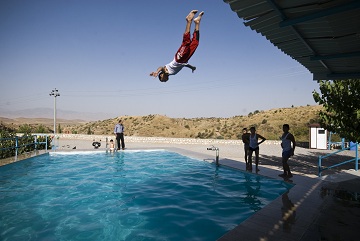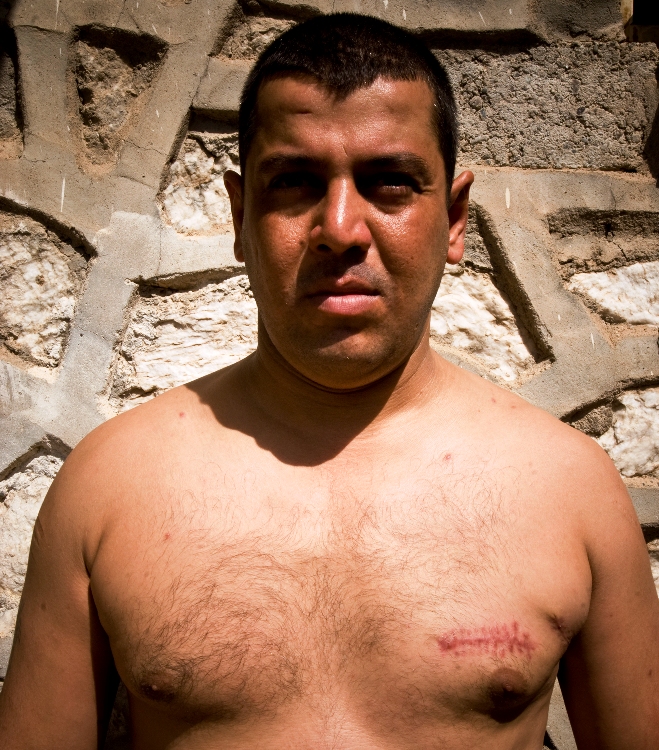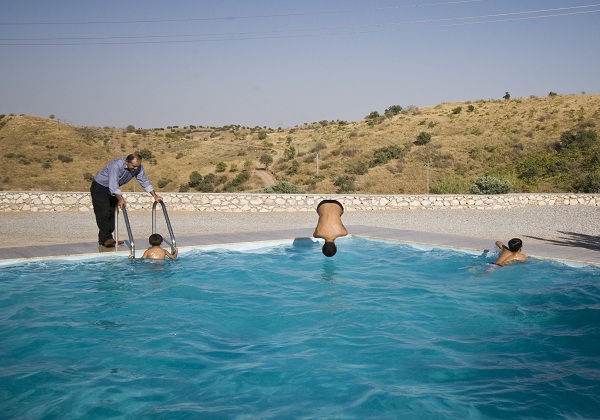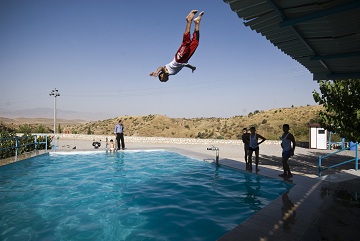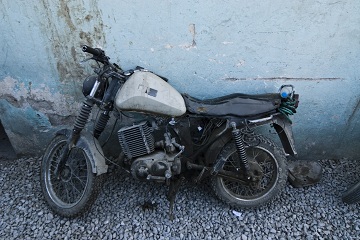
The one and only Sandra Romain (2001 cream-colored MZ 251 Kanuni) as she leaned, gutted by bandits, against the wall of the Afghan National Police compound in Charikar, Afghanistan about 50 Kilometers from her final resting place in Bagram. Photo by author.
Editor’s note: The following three vignettes are taken from Daniel C. Britt’s experience during the U.S. withdrawal from cities in Iraq, up through his overland zig-zag from Baghdad through Iran to Bagram, Afghanistan. He’s been traveling at ground level in the region since 2009, and was joined by videographer Max Hunter in 2010, the two of whom are chronicling the experience with a documentary film scheduled for independent release in 2013.
